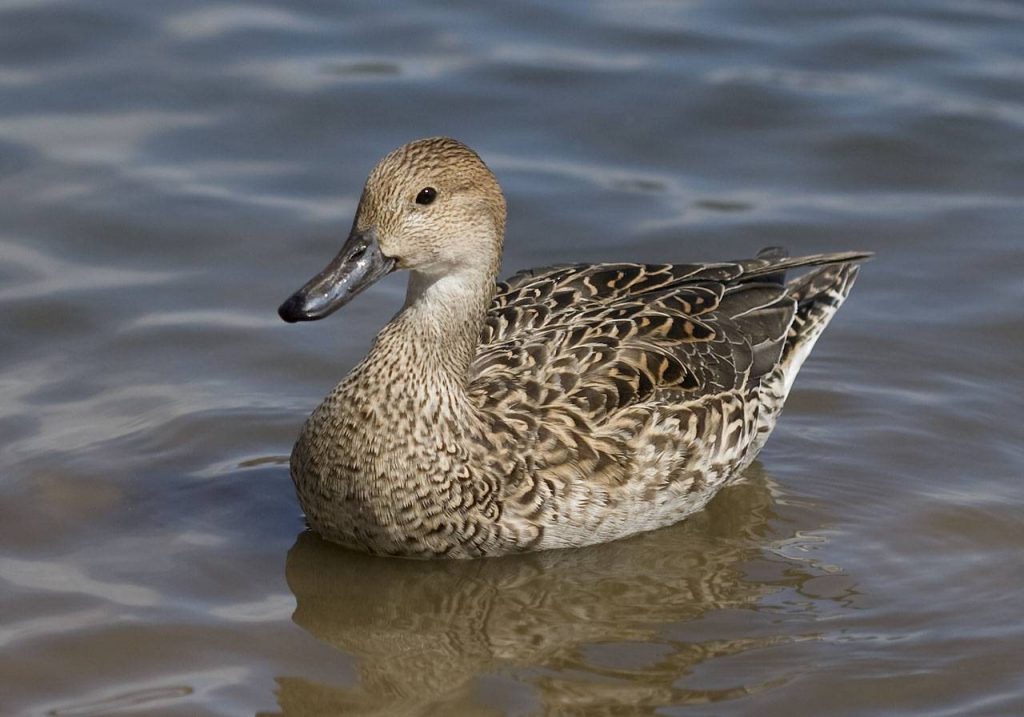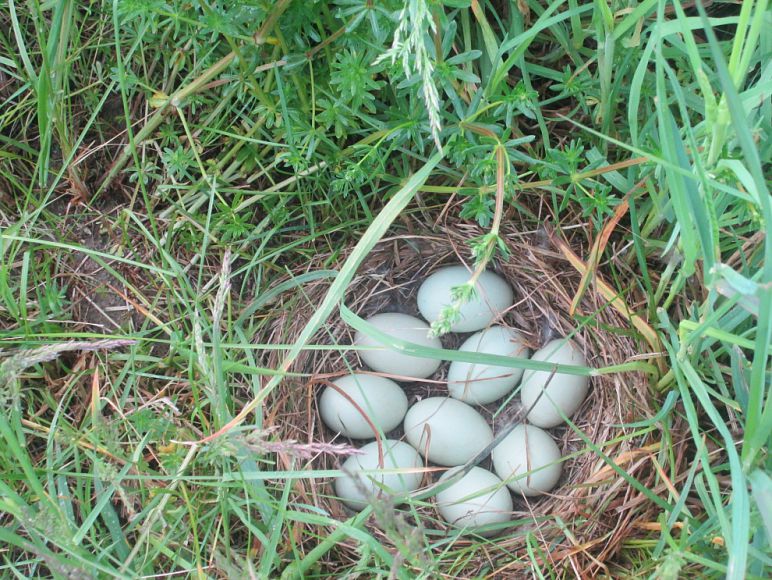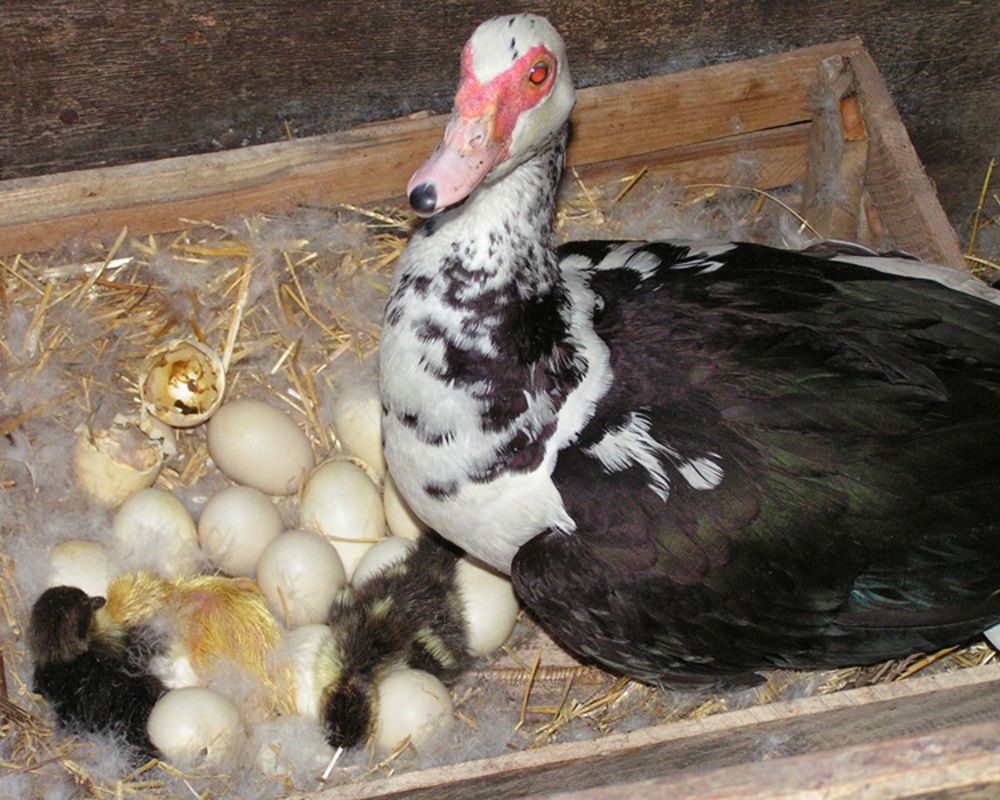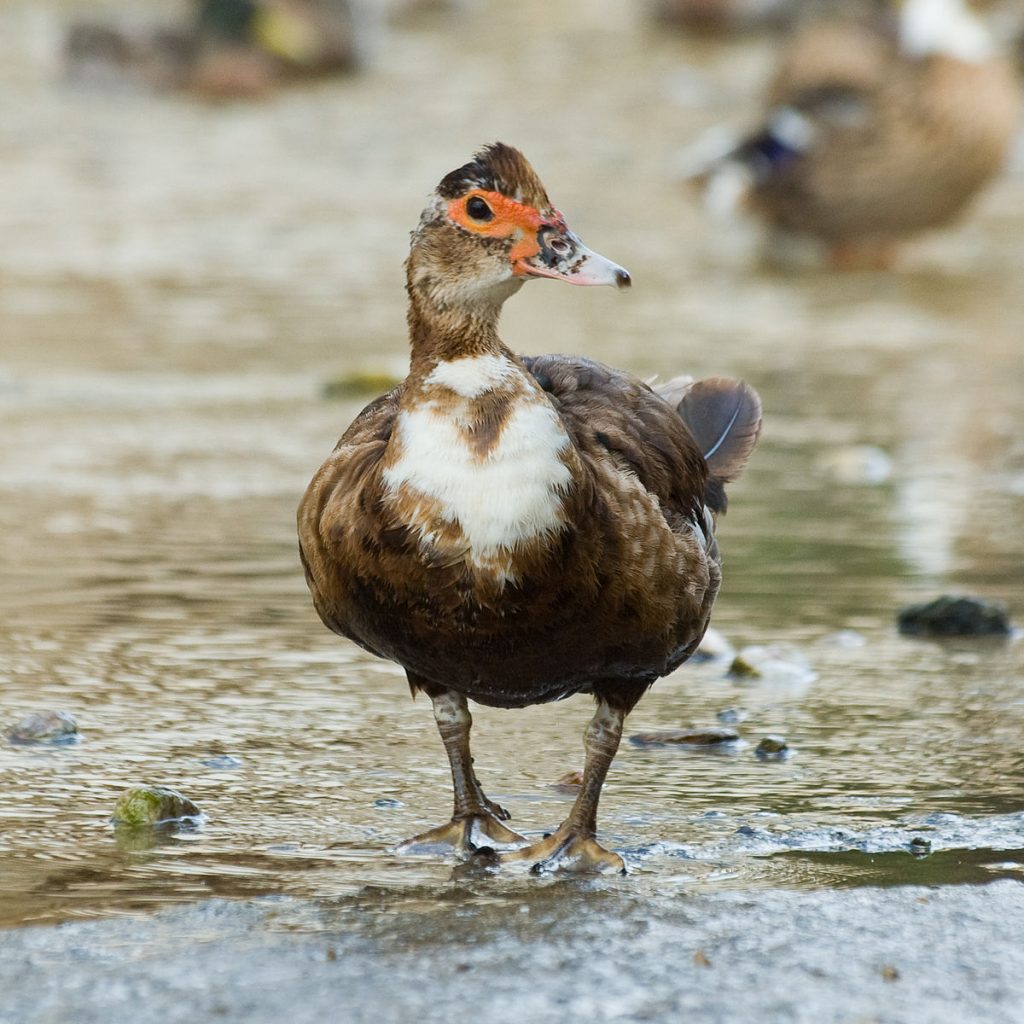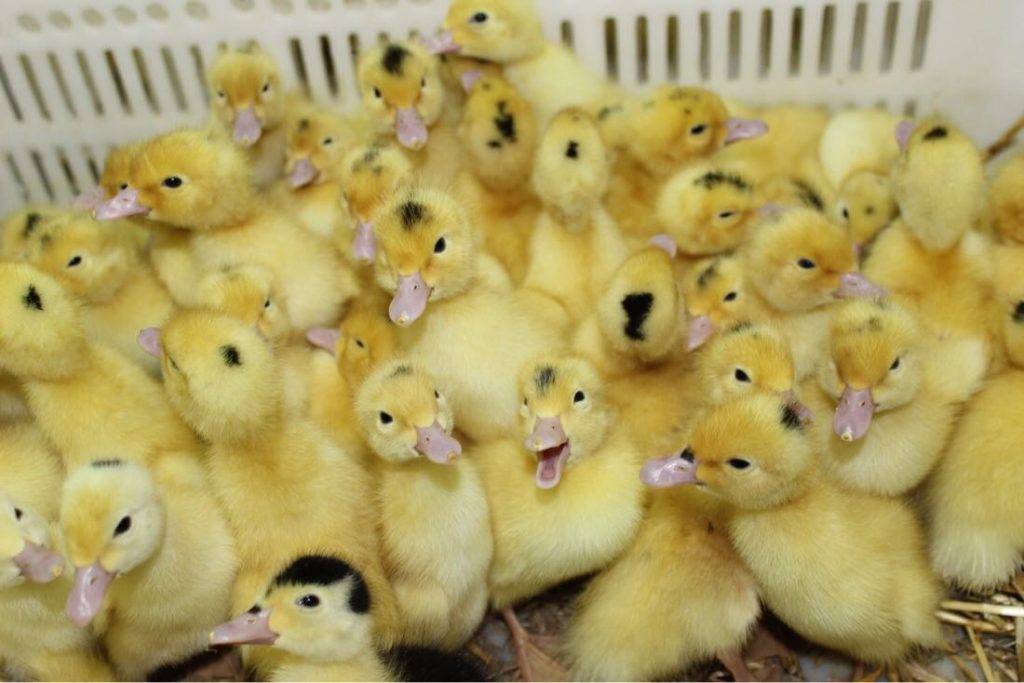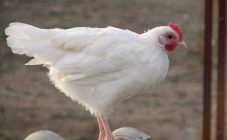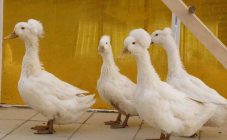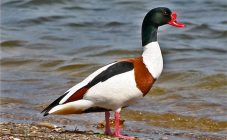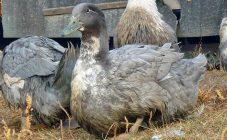Content:
In the spring, feathered domesticated birds of various subspecies (Indo, Musk, etc.) begin to prepare for breeding. They often insulate their nest with their own down, which they pluck out. Birds begin to spend a lot of time in the duckhouse, waiting for laying.
It doesn't take much effort to prepare a nest for incubation, because ducks are excellent brood hens and a good brood can be obtained without special equipment and under normal conditions. You just need to control the process and note how many days the duck sits on the eggs.
The ideal option is a separate place in another pen, where young individuals will not penetrate, where no one and nothing will distract the hen. You can temporarily fence off a small area in the duck house for the hen. When trying to find a secluded place, do not forget that ventilation in the duckhouse is very important - the air should not stagnate, there should be no unpleasant odors.
For equipping the nest, cardboard or wooden boxes are useful. If there are none, you can build a nest yourself - put together a small box from thin boards. It is strongly not recommended to use plastic for nesting equipment. Birds won't like the smell of plastic. Thin metal sheets or old barrels are fine.
So that the expectant mother does not go far from the nest, it is necessary to provide her with quick access to food and drink. An artificial reservoir nearby is also needed - it can be a large basin or a trough with clean water.
If there are 2 or more hens, it is necessary that they do not come into contact with each other in any way. The nests should be at a decent distance from each other, at different ends of the pen or in different rooms. If one hen suddenly sees that the other has already hatched ducklings, most likely, she will stop incubating.
Preparation for hatching and offspring
Sometimes the duck sits on its own eggs, and sometimes you have to plant it.
If a particular bird has a highly developed natural instinct, it can sit on eggs even in winter, after the first clutch. If this happened in winter, and by that time there are already several ten-day-old eggs, you can leave the bird on the eggs, but then you will have to add heat (heaters or stove heating) and increase daylight hours with artificial lighting.
The intention to hatch the offspring can be assumed if the duck began to line the nest with down. Then you need to put several eggs on it (10-14 days old, you can't take fresh ones). Farmers advise marking the entire clutch with a pencil or felt-tip pen to know how many days the egg is. If fresh masonry appears in the nest, it must be removed, and then you can put it back.
Only whole, large or medium testicles can be placed. If they are irregular in shape, with a defect in the shell or with a crack, do not take them. Testicles must be clean. You cannot wash them for incubation!
In the nest, all the masonry should fit in one row under the duck. The excess needs to be removed.
If not a single bird has deigned to prepare a nest, the owner will have to choose a hen on his own. From the whole flock, you need to choose a calm, not aggressive duck and test it. To understand whether the selected individual will be able to incubate chicks, you need to carefully pluck a little fluff from its breast and line the nest with it. 4-5 eggs are placed in her nest. The dummy can be made of wood, plaster, paraffin. The selected female is planted on eggs and closed for 3-4 days in a nest or corral, releasing 2-3 times a day to refresh and swim. If it is noticeable that the female is ready to hatch, it is necessary to increase the frequency and volume of her feeding, and replace the dummy with real testicles.
Novice farmers often don't know how long a duck is sitting on eggs. On average, a duck hatches offspring for about a month. The length of incubation depends on the breed. Peking ducks sit for about 27-29 days, musky (mute) more - 30-36 days.
How many days does a mallard duck sit on eggs? - on average, 26-28 days. Other wild breeds (Peganka, Gogol) hatch offspring for 28-40 days. It should be noted that in wild individuals the hatching instinct is well developed, unlike all others, they take good care of both eggs and chicks.
Bashkir ducks incubate chicks for about 28 days.
Mulard eggs are not suitable for hatching, since they are a hybrid, but females are quite suitable as brooders.
Different types of birds can incubate different numbers of eggs, depending on their body size. Sometimes it happens that an individual sits on eggs and several pieces fall out from under it, stick out. Such embryos run the risk of never hatching.
About 12-20 future chicks fit under the mute female. The mallard lays and incubates 7 to 12 eggs (no more than 12). Bashkir ducks hatch 10-17 pieces. A female Peking duck can hatch up to 20 eggs at a time.
How the hatching process takes place
When a feathered bird sits down to incubate chicks, you should be quiet and careful when approaching the corral. Ducks during the incubation period are very nervous, they can be afraid of any loud sound and run away from the nest. If the female was frightened, there is a high probability that she will not return to the nest. Farmers advise, approaching the barn, to give voice, talk to the duck, letting her know that the owner is approaching.
If the female sits in the nest for several days without getting up from it, you need to very carefully lift her and put her to the feeder. Sometimes this action needs to be repeated several times.
The most important thing during the incubation period is not to interfere with the duck, to ensure it is calm, clean and comfortable. The day of the brood hen should be at least 16 hours. If the enclosure is of a closed type, the female must be released for a walk every day, the total duration of the walks should be at least 30 minutes. It would also be nice to add mineral supplements and vitamins to the duck's main diet. If the size of the pen permits, a container of wood ash should be installed nearby. Birds use ash as a prophylaxis against parasites (they clean their legs and feathers with it).
Peking and musk ducks - the pros and cons of hatching
In one season, musk breeds can produce 2 broods of ducklings, i.e., start hatching 2 times. Their eggs have a faint gray coating. Under no circumstances should you wash it! Musky can hatch any eggs - duck, chicken, goose, turkey, but only if they are of the same genus.You cannot, for example, put chicken, etc. on turkey.
Musk breeds will not hatch offspring if something interferes with them. There is always a good reason, they just can't give up hatching. Many factors can be the reason: the presence of annoying neighbors - geese and chickens, the presence of rodents and parasites. Ducks don't like too bright light in the duckhouse either. The age of the bird matters - too young and old birds are not suitable for this. Poor living conditions do not give pleasure to ducks: stale, musty air, lack of clean water and food, heat or cold, extraneous noise.
Peking ducks do not have a pronounced instinct to hatch. And musky - on the contrary. Therefore, eggs of other birds - chickens, turkeys, geese are often laid on musky individuals. Many people immediately have a question - can a chicken hatch duck eggs? The answer is yes, maybe, but not as much as a duck. The chicken incubates 9-11 eggs, and the duck 12-20, depending on the size. As soon as the ducklings hatch under the chicken, they must be immediately transferred to a separate place.
The musky hen is a good brood hen, but will not sit on the nest if there are few eggs. There should be at least 12 of them. 12-15 pieces is an approximate minimum at which these hens agree to incubate chicks.
Muscovy duck must be taken out for a walk 2-3 times a day (if she does not get up herself), she must swim outside. She can also swim in the duckhouse - in a container with water. The bird sits wet in the nest, so that the protective film on the eggs is erased. If the film is not erased, the ducklings will not hatch - they will simply suffocate.
If there are only Peking individuals in the household, you need to be prepared for the fact that you will have to use a forced hatching method. In this case, it is necessary to constantly monitor how many days the duck incubates eggs, how many times it leaves the nest. If the mother duck does not return to future babies, you can make her return by covering it with a frame made of a metal transparent mesh (chain-link). If the duck starts to worry and fuss, all that remains is to apply incubation - to place future chicks in a warm and bright place until the end of maturation.
The ducklings have hatched! What to do?
Many people know how ducklings hatch, but not everyone knows what to do with them next. The shell begins to crack, and the duck pecks at it himself. Ducklings hatch all at once, within 1-3 days, one after another. The duck sometimes eats the extra shell itself so that the babies are not cramped. If the shell remains after hatching, you can remove it. It is better to take small, newly hatched ducklings home for a couple of days so that mom does not accidentally crush them. It happens that the duck hisses and does not allow the ducklings to approach. In this case, you should approach her another time.
If the hen spent 2 days with the ducklings and everyone remained intact, you no longer need to worry about them. After 2-3 days after hatching, the ducklings are usually taken outside. Mom teaches them to eat, drink, walk.
Some people remove the ducklings from their mother (for example, if the ducklings are being prepared for sale) and put her back on eggs. You can do this, but for the ducklings it is better if the duck that hatched them will look after them.
When the duck reared the ducklings, the question arises - what to do next? First of all, you need to clean the nest - remove debris, feathers, fluff, replace the bedding. For 3 weeks, ducklings spend the night with a duck and a drake in a duckhouse, under the wing. They hide under the wing if they are scared or when the weather outside is bad.
For ducklings, you can organize baths - pour warm and clean water into a small container.Kids love to swim. It gives them pleasure and sitting on the boards. Narrow boards can be laid out both in the pen and outside on the ground.
You need to feed the ducklings as soon as they left the house, or on the third day after hatching. Within 5 days, you can give the ducklings boiled chicken and duck eggs, cut into small pieces and mixed with boiled cereals. Grits can be mixed with corn or barley, it should be crumbly and fresh. On the 6th day, the ducklings are given cottage cheese. After a few days, you can add fresh finely chopped grass to the cottage cheese - clover, nettle, alfalfa. You can add wheat porridge later. After 2-3 weeks, you can give boiled vegetables - carrots, beets, potatoes and boiled fish.
Ducklings that will grow without a mother need to be placed in a box or basket under a lamp, in a bright place. A soft cloth should be placed under the feet. It is necessary to maintain the temperature in the room or in the box at the level of 26-28 degrees for 20 days.
If the ducklings are brought up without a mother duck, the feeding scheme is slightly different - they are fed a little 8-10 times a day until they reach 15 days of age. After 15 days, the portions are reduced. When the ducklings are 20 days old, they are released into the fresh air. In the pen they walk, nibble the grass, swim.
Breeding ducks is a profitable activity, but only if you have time to watch and care for them. Domestic ducks are distinguished by delicious, juicy, dietary meat. For good meat, hens should be raised, and if you want to constantly have homemade fresh eggs, then laying hens.
